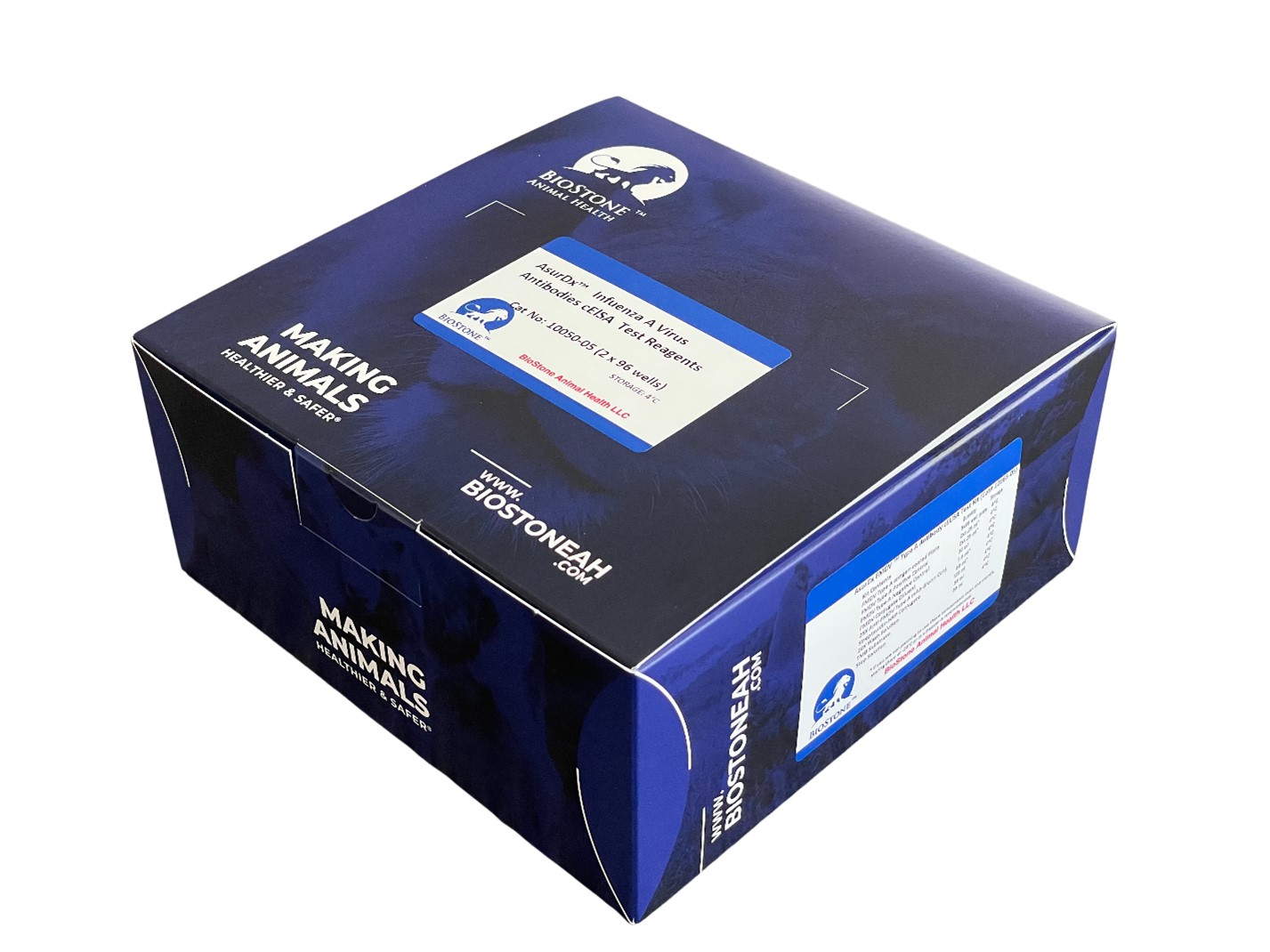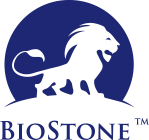AsurDx™ Influenza A Virus (IAV) Antibodies cELISA Test
The AsurDxTM Influenza A Virus (IAV) Antibodies cELISA Test Kit is designed for the detection of antibodies specific to all subtypes of influenza A virus (IAV) in avian, swine, and equine serum and plasma samples.

Feature
- Detects antibodies against IAV NP protein in avian, swine and equine serum and plasma samples
- Detects all IAV subtypes as early as 5 days after the virus exposure
- Procedures last less than 90 minutes and do not need sample pre-dilution step
- Provides a simple, rapid, sensitive and specific competitive enzyme-based immunoassay (cELISA) screening method
*Availability/Distribution: Product is designed and developed by BioStone US Texas headquarter and manufactured/assembled by BioStone oversea subsidiaries or partners. Currently, the product is only available outside of the USA. Regulatory requirements vary by oversea countries; the product may not be available in your geographic area.
Specification
| Method | Competitive ELISA |
| Coated Antigen | IAV NP antigen-coated Plate |
| Incubation Time | 80 minutes |
| Storage | At least 12 months |
| Specificity | All IAV subtypes in avian, swine, and equine serum and plasma samples |
Order Information
| Catalog Number | 10050-02 | 10050-05 |
| Plates | 2 plates | 5 plates |
| Reactions | 192 | 480 |
| Plate Format | 12 X 8-well strips | 12 X 8-well strips |
About Disease
IVA causes influenza in birds and some mammals such as pigs and horses and is the only species of the Alpha influenza virus genus of the Orthomyxoviridae family of viruses. Strains of all subtypes of IAV have been isolated from wild birds, although disease is uncommon. Some isolates of IAV cause severe disease both in domestic poultry and, rarely, in humans. Influenza A viruses are negative-sense, single-stranded, segmented RNA viruses. The several subtypes are labeled according to an H number (for the type of hemagglutinin) and an N number (for the type of neuraminidase). There are 18 different known H antigens (H1 to H18) and 11 different known N antigens (N1 to N11).
